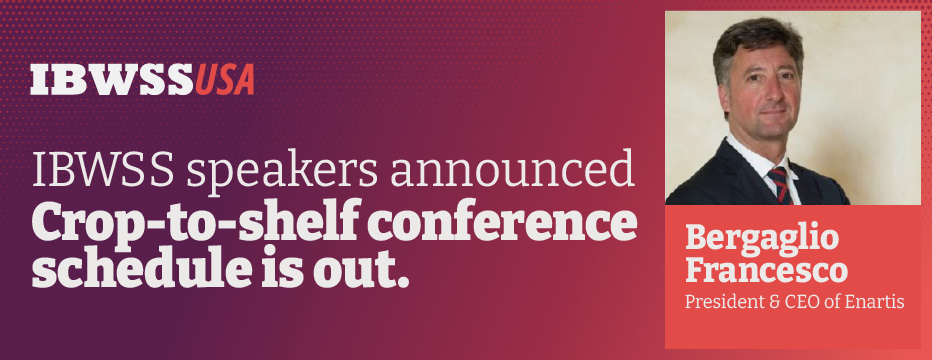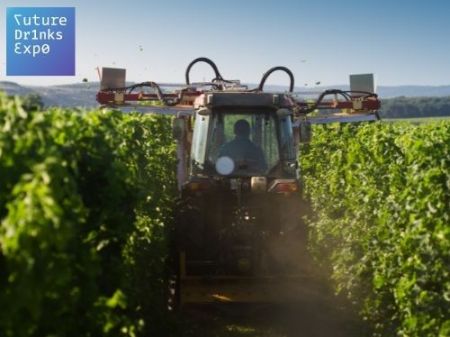Sommeliers Choice Awards 2023 Winners
Q&A Why the Wines of South Africa Partnered with the Oakland Wine Festival
Oakland Wine Festival’s Kick-Off Tasting and Soiree featuring the Wines of South Africa and South Africa wines is a wine head-scratcher for many

Oakland Wine Festival’s Kick-Off Tasting and Soiree featuring the Wines of South Africa and South Africa wines is a wine head-scratcher for many. When the announcement was made that the international wine partner for the Third Annual Oakland Wine Festival was South Africa, some tilted their heads slightly and offered one-word replies of “Hmmm, Really, Oh…, or Yes!”
We decided that the wine world would be interested in knowing why the Wines of South Africa partnered with the Oakland Wine Festival, so we spoke with Jim Clarke, the Marketing Manager for Wines of South Africa USA.
Here is our conversation:
Why Work with The Oakland Wine Festival?
The Oakland Wine Festival has had remarkable success since its inception 3 years ago, and the Wines of South Africa organization is honored to participate this year. As the Oakland wine scene continues to diversify and excite, this is an opportune moment to share the diversity and energy happening with South African wines and winemakers. From discovering plantings of Old-Vine Chenin Blanc to producing new expressions of the native Pinotage, South African wine has never been more exciting.
Tell me about Oakland Wine Festival Founder, Melody Fuller, and how you came to meet and work with her.
Melody called me out of the blue and we talked about South Africa being the guest region for the Festival. She showed such an obvious enthusiasm for South Africa and Oakland seemed like a wonderful place to feature the wines, so we were ready to get on board almost immediately.
With these tremendous opportunities (April 23, 2017 and July 15, 2017) what do you wish to share, educate and inform the wine enthusiast, wine curious, sommeliers, media, trade and other vintners about South Africa wines?
South Africa wines are building their reputation. It’s a country with wineries going back almost 360 years, but which was largely cut off from the U.S. and rest of the world by embargos in the late 20th century. The country has come a long way in only 25 years, thanks to the passion, ambition, and dedication of the people in the industry who worked hard to make quality wine to gain popularity. This is a terrific opportunity to increase awareness for the wines of South Africa with media, trade, and consumers in the Bay Area.
What makes South Africa’s wines unique?
South African wine producers not only master international grape varieties, but they have also created an identity for somewhat lesser-known varietals such as Chenin Blanc, the Cape’s most-planted grape, and Pinotage. The terroir diversity enables South Africa to offer wines of many distinctive styles, including, elegant reds, sparkling wines with Méthode Cap Classique, and sophisticated white blends, often based on Chenin Blanc.
Who are some of South Africa’s unsung wine legends and why?
Even classic producers like those of Stellenbosch, Franschhoek, and Constantia might be called “unsung” in the American market, but they’ve been winning great awards and scores for years. What’s happening today is winemakers are rediscovering whole regions that were being underappreciated. Swartland is the most high-profile example, but now you find exciting wines from Citrusdal, Robertson, and even the Ceres plateau. Finally, there are the “new” regions that weren’t really part of South Africa’s 358-year winemaking history, but started growing grapes just a few decades ago. These are often cool-climate areas and are making some of the country’s highest regarded Chardonnays and Pinot Noirs among other varieties.
What are some of the largest myths about the South Africa wine industry?
For most Americans, South African wine is a bit of a blank slate, actually, but I think one challenge has been American perception of Africa generally as a backward, wild place – an image some producers played too in decades’ past, with critter labels and the like, but which doesn’t match with the image of wine as a sophisticated drink. I think after South Africa hosted the 2010 World Cup that image began to change, and more and more Americans understand that South Africa is very much part of the modern world, with a rich history, sophisticated restaurants, and a well-developed infrastructure for wine production and wine tourism.
Read More at source: Wine Industry Advisor







